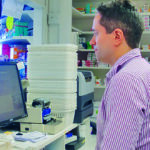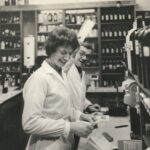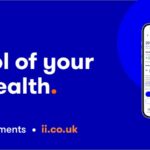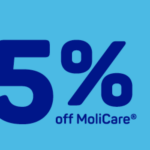We look at the role of a pharmacist as well as how to become a pharmacist and must-have skills
Pharmacists are at the front line of healthcare all over the country. They work from community pharmacies (in high streets and local shopping parades) or healthcare centres, hospitals and doctor’s surgeries.
A community pharmacist will help you assess your medical condition and which medicines you should take for common illnesses. They also dispense NHS medicines and offer patients advice and practical help on keeping healthy.
Pharmacists are experts in medicines and how they are used, giving them a unique set of skills and knowledge.
It is a very responsible job and community pharmacists tend to be highly respected and trusted members of their community.
Pharmacists are also becoming more involved in roles that have traditionally been undertaken by doctors, such as the management and monitoring of long-term conditions, for example asthma and diabetes, as well as delivering vaccinations and conducting medicines reviews.
They also help people give up smoking or lose weight and can advise on sexual health matters. Some community pharmacists run their own businesses and enjoy the challenges of management and having responsibility for staff, stock and premises.
Pharmacists also educate and train other pharmacists and other members of the healthcare team as well as leading a team of pharmacy staff.
Within the next few years, all pharmacists will be qualified to prescribe when they complete their undergraduate training. They also work in other roles where there may be less direct contact with patients, for example in universities, regulation, government organisations, research, publishing and the pharmaceutical industry.
Pharmacists are experts in medicines and how they are used, giving them a unique set of skills and knowledge.
Why become a pharmacist?
Job security, flexible working, transferable skills, variety and opportunities to specialise are all considered to be among the advantages of becoming a pharmacist. You will have the satisfaction of helping patients and every day will be different.
Qualifications and training
For someone to practise as a pharmacist in England, Wales and Scotland they need to be registered with the General Pharmaceutical Council (GPhC). In Northern Ireland, they must pass the Pharmaceutical Society of Northern Ireland’s registration examination.
Before that, a pharmacist must complete a five-year programme of integrated academic and clinical-based teaching. The first four years will be spent as a student working for a Master’s degree in pharmacy (MPharm) at a school of pharmacy at a university followed by a one-year paid work placement.
Entry requirements for the MPharm degree vary between universities. Typically, a student is expected to have A-B grade A-levels in chemistry and two further A-levels in either biology, mathematics or physics. Someone with A-levels in chemistry and biology may also be considered with an alternative third subject.
The degree course combines learning theory with gaining practical skills. It integrates science and practice and equips students with the theoretical knowledge, professional behaviours and clinical skills that are needed to become a pharmacist. Courses cover origin and chemistry of drugs, preparation of medicines, action and uses of drugs and medicines including physiology, biochemistry, microbiology, pathology and pharmacology pharmacy practice. They also cover laws and standards, managing symptoms, promoting healthy lifestyles and advising on drug therapy and medicines use.
Accredited courses must meet the regulator’s standards but programmes vary in their content, the way they are structured and how they are taught and assessed.
A year of practical training gives students the opportunity to apply their academic knowledge in real-life situations. The aim of this training year is to demonstrate the trainee has the skills, knowledge and character to practise to the standards expected of a pharmacist.
This year is not just about assessments but about learning how to practise in a way that delivers the best outcomes for patients.
It is a good environment for testing clinical knowledge and clinical judgment but it is also somewhere where trainees are working closely with other pharmacists so they can ask for help if needed. At the end of this year, pharmacists must pass the registration assessment after which they will be able to register and practise.
Registered pharmacists are mandated to keep their skills and knowledge up to date with continuing professional development (CPD) to revalidate their professional licence each year.
Skills needed
Pharmacies are generally busy environments, so being organised, logical, able to manage multiple tasks and an ability to remain calm under pressure are essential traits for a pharmacist.
A good eye for detail and being thorough and accurate is also needed. Good communication skills are required to explain medicines information to patients. Pharmacists are part of a team and often involved in education and training others, so good people skills are also essential.
Training and development
Registered pharmacists are mandated to keep their skills and knowledge up to date with continuing professional development (CPD) to revalidate their professional licence each year.
Want to find out more?
The Community Pharmacy Workforce Development Group (CPWDG) is a cross-sector group that brings together the expertise of education, training and professional workforce leads from across the community pharmacy sector. Its website at https://communitypharmacycareers.org has information for those who are interested in a career in community pharmacy.














![BODi-NPA_UK-MPU_Hero-1300×450[14]](jpg/bodi-npa_uk-mpu_hero-1300x45014-1-150x150.jpg)






























































































![19150_Diageo NCP MPU Hero_1300x450px[94][42]](png/19150_diageo-ncp-mpu-hero_1300x450px9442-150x150.png)














